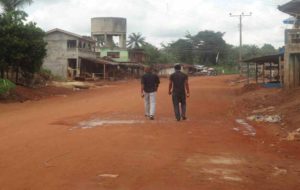Aji
In Oru, Aji is the oldest. The seat of all the political and developmental activities until recently. Aji the prime being among the children of ORU still commands the respect of all his younger siblings.
The following are the villages in Aji:
1. Abuga
2. Akwada
3. Amiri Aji
4. Ezi Aji
5. Ihite Aji
6. Ubaha Aji
7. Ubaha Eze
8. Ubahanneri
9. Umumeagwu
This information was provided by Tony Ibenacho (Washington, DC Branch). To provide additional information about Aji, please use the comment form below.
**************************************************************
TOP COMMENT
I appreciate the author for his kind attempt to put Aji in the lime light. But seriously, I am not comfortable with the somewhat altered information provided here.
First of all, Aji is not the son of the said ORU. Oru is a generic name used to refer to people in riverine areas by Oguta people, though our present ORU was just an adopted name. Aji is the son of a man called OMA… The same man is also the father of Ibiasoegbe and some other communities like Eleh, etc. Hence we have Aji-Oma, Ibi-Oma, and Eleh-Oma as the actual names of these communities. Aji is not the first son.
Secondly, there is no village like IHITTE AJI. Ihitte-Aji is a sub-division of Aji, made up of some villages including Ubahampam, Amorie Aji, Umumeagwu, etc. Aji has three subdivisions known as EZI, IHITTE and OKIJA. EZI includes Eziaji, Ubahaji, etc. OKIJA includes Ubahanneri, etc.
Thirdly, the name AMIRI AJI is incorrect. Though people mispronounce it, the right spelling is AMORIE AJI.
Finally, the villages are meant to be arranged in chronological order and not alphabetically. I had to make these corrections because I am into research writing and I help people write research project reports on the history of their respective communities and I have come to learn that once the initial author of a related work provides wrong information, especially on the internet, that wrong information is passed to the next generation.
Please kindly reconsider getting the right information and rewriting this piece. God bless you.
NZERIBE VICTOR CHISOM
(From Umumeagwu Aji)
OWERRI, NIGERIA
July 28, 2017
